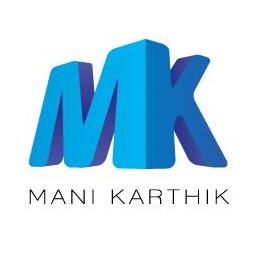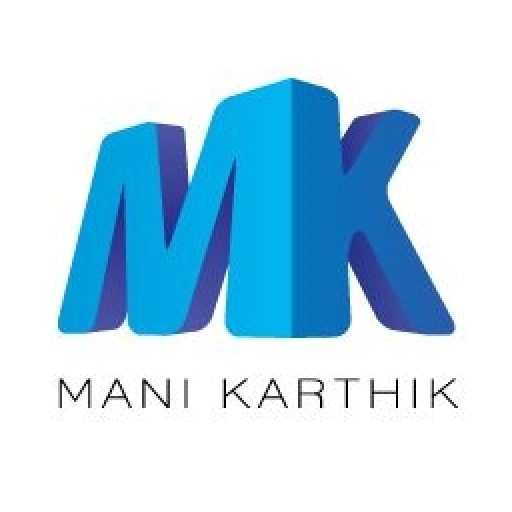How to Use ChatGPT for SEO: A Beginner’s Guide

Everyone’s asking me the same question: “Should I use ChatGPT for SEO?”
Short answer: Yes, but not how you think.
I’ve been using ChatGPT for SEO since it launched. I’ve seen founders waste weeks generating thousands of AI articles (that never rank).
I’ve also seen smart teams use it to cut their SEO workflow time by 60%.
Here’s what actually works.
What ChatGPT Actually Does for SEO
First, let’s kill the hype.
ChatGPT isn’t going to write your entire SEO strategy. It can’t access real-time search data. It doesn’t know what’s trending on Google today.
What it can do is handle the tedious stuff so you can focus on strategy.
Think of it as having a research assistant who never gets tired of brainstorming keywords or writing meta descriptions. That’s it.
The Reality Check (Things ChatGPT Can’t Do)
Before we dive into the good stuff, here’s what ChatGPT sucks at:
- No real-time data: It can’t tell you search volumes, competition scores, or what’s ranking today
- Hallucinations: It makes stuff up and sounds confident about it
- Outdated info: Its knowledge has a cutoff date (currently around June 2024)
- No strategy: It can’t analyze your competitors or tell you what content gaps exist
ChatGPT often “hallucinates”, providing inaccurate answers, so you need to fact-check everything.
Tip: If you’re relying on ChatGPT for search volumes or competitor analysis, you’re doing it wrong.
Use proper SEO tools for that.
What ChatGPT Actually Excels At
Here’s where it shines:
Keyword brainstorming: Give it a seed keyword, get dozens of related terms
Content outlining: Structure your articles before writing
Meta optimization: Write title tags and descriptions that don’t suck
Content repurposing: Turn one piece of content into multiple formats
The trick is knowing how to prompt it correctly.
Step-by-Step Guide to Using ChatGPT for SEO
Here are my guidelines to doing AI SEO with ChatGPT.
1. Keyword Research (The Right Way)
ChatGPT can’t replace Ahrefs, but it’s great for brainstorming.
Start with seed keywords:
"I'm writing content for a SaaS project management tool. Generate 15 seed keywords related to project management software."
Then drill down into long-tail keywords:
"From the keyword 'project management software,' generate 10 long-tail keywords with informational search intent that a startup founder might search for."
Find LSI keywords:
"Generate 15 LSI keywords related to 'project management tools' that I can naturally include in my content."
The key is being specific about your audience and intent.
2. Content Planning and Outlines
This is where ChatGPT really saves time.
Create comprehensive outlines:
"Create an SEO-friendly blog outline for 'How to Choose Project Management Software in 2025' targeting first-time buyers. Include H1, H2, and H3 tags with a logical flow."
Generate content ideas:
"I run a SaaS project management tool. Generate 10 blog post ideas that would attract startup founders searching for productivity solutions. Focus on informational intent."
3. Meta Tags That Actually Work
Most people suck at writing meta descriptions. ChatGPT doesn’t.
Title tags:
"My blog post is titled 'Complete Guide to Project Management Software for Startups in 2025.' The current title tag is 78 characters. Suggest an SEO-friendly title tag under 60 characters that includes the keyword 'project management software.'"
Meta descriptions:
"Write a compelling meta description under 155 characters for a blog post about 'project management software for startups.' Include the keyword and make it click-worthy."
Want variations?
"Give me 3 more versions of that meta description, each with a different emotional hook."
4. Content Optimization
ChatGPT can help optimize existing content without keyword stuffing.
Improve readability:
"Rewrite this paragraph to include the keyword 'project management tools' naturally while improving readability for an 8th-grade reading level."
Add semantic keywords:
"Rewrite this content about project management software to naturally include these related terms: team collaboration, task tracking, workflow automation. Keep it under 200 words."
5. FAQ Generation
FAQs are SEO gold. ChatGPT makes them easy.
"Generate 8 frequently asked questions about project management software that startup founders would ask. Include answers that are helpful and SEO-optimized."
Advanced Prompts That Actually Work
Here are the prompts I use most:
Search intent analysis:
"Analyze the search intent behind the keyword 'best project management software.' What are users really looking for? Are they comparing options, ready to buy, or just learning?"
Content gap identification:
"I want to rank for 'project management software.' What subtopics should I cover that most competitors miss? Think about user journey from awareness to purchase."
Schema markup generation:
"Generate JSON-LD schema markup for a blog post about 'project management software comparison.' Include proper Article schema with author, date, and organization details."
The Prompting Rules That Matter
Most people write terrible prompts. Here’s how to get better results:
Be specific about your audience:
Bad: “Write about project management”
Good: “Write for startup founders with 5-20 employees who are choosing their first project management tool”
Include context:
Bad: “Generate keywords”
Good: “Generate keywords for a SaaS company targeting small businesses in the project management space”
Specify format and length:
Bad: “Write a meta description”
Good: “Write a meta description under 155 characters that includes the keyword ‘project management software’ and appeals to startup founders”
Use role-playing: “Act as an SEO expert with 10 years of experience. Analyze this content outline and suggest improvements for better search rankings.”
Common Mistakes to Avoid
I see these mistakes constantly:
Using ChatGPT for everything: It’s a tool, not a strategy
Not fact-checking: Always verify claims and statistics
Generic prompts: The more specific, the better results
Ignoring character limits: Search engines show meta titles up to 60 characters and descriptions up to 155-160 characters
Expecting perfect content: Always edit and add your own expertise
When to Use ChatGPT vs. Real SEO Tools
| Use ChatGPT For | Use SEO Tools For |
|---|---|
| Brainstorming keywords | Search volume data |
| Content outlines | Competitor analysis |
| Meta tag writing | Rank tracking |
| Content optimization | Backlink analysis |
| FAQ generation | Technical SEO audits |
Making It Work for Your SaaS
Here’s my workflow for all my SaaS SEO projects:
- Start with proper keyword research in Ahrefs or Semrush
- Use ChatGPT to brainstorm related terms and content angles
- Create outlines with ChatGPT, then add your expertise
- Write meta tags with ChatGPT, test different versions
- Optimize existing content by having ChatGPT suggest improvements
The key is using ChatGPT to speed up the process, not replace your brain.
The Bottom Line
ChatGPT won’t make you an SEO expert overnight. But it will make you faster at the stuff that takes forever.
Cut keyword research time by 60%, create content that consistently ranks in the top 10 – that’s what’s possible when you use it right.
The companies winning with ChatGPT for SEO aren’t the ones using it to spam content. They’re the ones using it to think faster, research better, and execute cleaner.
Everyone else is still stuck manually writing meta descriptions while their competitors ship content twice as fast.
Tip: Start small. Pick one task – like writing meta descriptions – and get good at prompting for that. Then expand.
Ready to speed up your SEO workflow? I’ve helped SaaS companies like Dukaan cut their content creation time in half using these exact techniques. If you want honest feedback on your current approach (and a plan that actually works), let’s talk.

